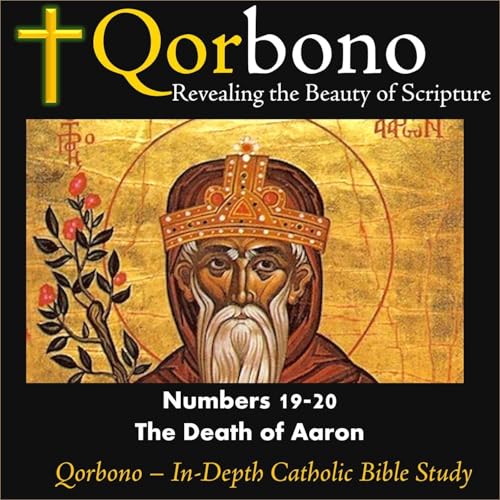
Numbers 19 -- 20
Failed to add items
Add to basket failed.
Add to Wish List failed.
Remove from Wish List failed.
Follow podcast failed
Unfollow podcast failed
-
Narrated by:
-
By:
About this listen
Book of Numbers #9
Whoever touches a dead person, the body of any man who has died, and does not cleanse himself, defiles the tabernacle of the LORDThis passage, taken from Exodus 19:13, illustrates the fundamental contradiction man finds himself in: he, the unclean creature since the fall of Adam, is called to live before the Lord who is all Holy.
In this study we focus on the offering of the red heifer -- a red cow -- who was to be sacrificed as a whole burnt offering but not on the altar of sacrifice inside the tabernacle, rather she was to be sacrificed outside the camp, much like what would happen to Christ in his passion when he was offered as a whole burnt offering on Golgotha, outside the walls of Jerusalem.
Chapter 19 has 22 verses and the word "unclean" appears 17 times, the word "clean" 5, and the verb "cleanse" 5 times. In total 27 words referring to bodily cleanliness/uncleanliness, none of which can forgive sins nor bring peace of mind. Further, the purification by sprinkling is a prelude to the baptism of remission of sins instituted by Christ. Seen from the Cross, the red heifer ceremonial is a preparation of minds and heart to the necessity of Christ, his coming, His death, and resurrection.
Is it then surprising that chapter 20 records the death of Miriam and Aaron in the midst of military and spiritual turmoil? Their death is recorded but not their resurrection and so these two chapters taken together highlight in stark terms the difference between the old and the new covenant: the lack of an empty tomb in the former and the glory of the resurrection in the latter.


